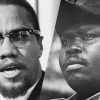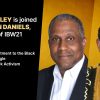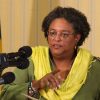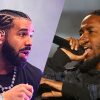Not content with alienating single women, Latinos and the LGBT community, the two front-runners for the Republican nomination indulged in some naked Islamophobia this past week.
Donald Trump told an audience member at one of his events that he’d “look into” either expelling America’s Muslim population, or the existence of Jihadi training camps on US soil, depending on how charitably one viewed the exchange.
Then Ben Carson appeared on Meet The Press, where he told Chuck Todd that Islam was inconsistent with the Constitution and said that he “would not advocate that we put a Muslim in charge of this nation.”
This kind of bigotry won’t hurt these candidates in the primary. A YouGov poll earlier this year found that only one in five Americans—and one in seven Republicans—held a positive view of Islam. And according to Public Policy polling, only half of Iowa Republicans “think the religion of Islam should even be legal in the United States.” Ben Carson reportedly saw his donations spike after his interview with Todd.
But this kind of callous disregard for a minority that’s faced serious discrimination—and no small amount of violence—should hurt. The candidates reinforced a central tenet—perhaps the central tenet—of anti-Muslim bigotry: That Islam is an inherently foreign religion that’s incompatible with US citizenship. This view is common among shouty people who protest outside mosques and politicians who push those Constitutionally sketchy bans on “Sharia law.”
In that sense, claims that Barack Obama is a crypto-Muslim are really a proxy for the belief that he was born in Kenya and is ineligble to be president. A poll earlier this month found that 66 percent of Trump’s supporters said Obama is a Muslim and 61 percent thought he was born overseas. (Perhaps we shouldn’t give Trump, an avowed “birther”, the benefit of the doubt in his exchange with that guy in the audience.)
It’s a belief based on the kind of widely debunked “history” peddled by David Barton, a popular figure on the tea party circuit who claims that the United States is a “Christian nation” founded by men whose theology resembled Mike Huckabee’s.
But while Muslims are a small minority, Islam is just as American as Christianity. It’s true that a significant share of Muslims living in the U.S. today were born abroad, but it’s also true that from the very beginning, Islam has always been part of the social fabric of this country.
In fact, it’s possible that Muslims got here before the first Christians. According to the PBS special, some historians believe that Muslims first arrived in the Americas in the early 14th century, after being expelled from Spain. Others say that Christopher Columbus referred to a book written by Portuguese Muslims who had navigated to the “New World” in the 12th century during his 1492 voyage.
Those are controversial claims. But it’s clear that Muslims arrived here in significant numbers in the 16th century, along with large-scale European colonization. Some came voluntarily, but many more were brought here forcibly to work as slaves.
According to the Encyclopedia of Religion in the South, 10-15 percent of all slaves were Muslims, many of whom were “literate and highly educated,” and “kept the spirit of Islam burning even while enslaved.”
Several Muslims fought for America’s independence with distinction under George Washington. Greg Considine, a sociologist at Rice University, wrote for the Huffington Post that one soldier believed to have been a Muslim, Peter Buckminster, “etched his name into American history at the Battle of Bunker Hill by firing the shot which killed Great Britain’s Major General John Pitcairn.” Muslim-Americans fought in the War of 1812, in the Civil War and in every major conflict since.
From the 1870s until 1924, when the United States severely restricted most non-white immigration, new arrivals from the Middle East—mostly from Syria and Lebanon—swelled the Muslim population. Their descendants have been Americans for many generations.
Thirty years later, when the US once again opened its doors to new immigrants, a new wave of Muslim immigrants arrived here from Africa, Asia and the Middle East.
At around that time, the rise of the African-American Muslim Nationalist Movement led to huge numbers of new converts. According to Gallup, 35 percent of Muslims in America today are black—the largest group within the most ethnically diverse faith in the United States.
Estimates vary widely, but there are somewhere between one and six million muslims in the United States. According to a 2004 survey by Zogby International, they tend to “have a favorable outlook on life in America, and wish to be a part of the mainstream.” Almost six in 10 hold at least an undergraduate degree, making them the most educated faith group in this country. Many work in professional fields. America’s Muslim community is believed to be the wealthiest in the world. They have high rates of civic participation, and there’s no evidence that they embrace extremism at a higher rate than Christians or Jews.
According to Gallup, Muslim women are among the most educated in the country, and work outside the home at a slightly higher rate than American women as a whole. One in three have a professional job. The gender pay-gap among American Muslims is smaller that that of any other group.
The Pew report prompted Bret Stephens and Joseph Rago to write in The Wall Street Journal that “America’s Muslims tend to be role models both as Americans and as Muslims.” But to varying degrees, they have always faced discrimination and persecution at the hands of America’s Christian majority.
Muslim slaves were often forced to practice their religion in secrecy. Many were forcibly converted to Christianity. In his book, The Crescent Obscured: The United States and the Muslim World, 1776-1815, historian Robert Allison notes that some anti-Federalists at the Constitutional Convention of 1787 didn’t want to include religious liberty in the Bill of Rights because it would protect the Islamic faith—an argument echoed today by people like Ben Carson, or Representative Jodi Hice (R-Georgia), who wrote that Islam “is a complete geo-political structure and, as such, does not deserve First Amendment protection.”
Sadly, Islamophobia isn’t just a problem on the right. In the Yougov poll cited above, 43 percent of Democrats said they held an unfavorable view of Islam, and Pew found that “a majority of Muslims say a friend or family member has suffered discrimination since the September 11 attacks.” Casual Islamophobia is often tolerated in a way that bigotry toward other minorities is not.
It’s time for this to stop. After 400 years in the Americas, and having helped build and defend this country, we need to accept that American Muslims are just as American—and just as loyal—as anyone else.














